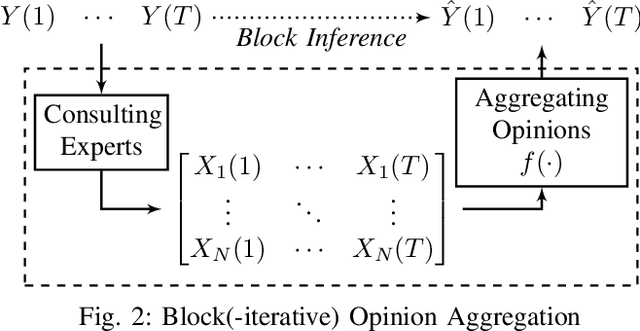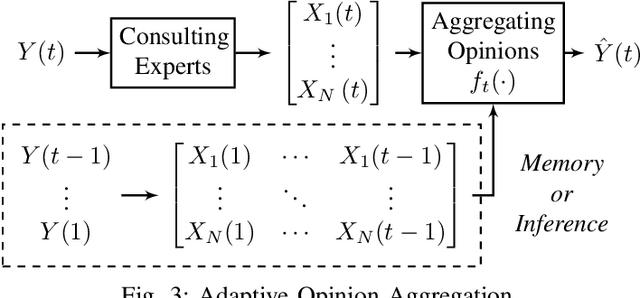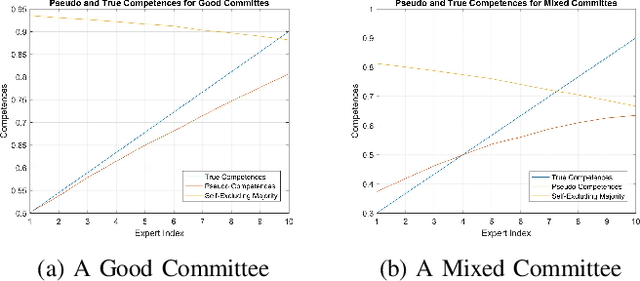Unsupervised Opinion Aggregation -- A Statistical Perspective
Paper and Code
Aug 20, 2023



Complex decision-making systems rarely have direct access to the current state of the world and they instead rely on opinions to form an understanding of what the ground truth could be. Even in problems where experts provide opinions without any intention to manipulate the decision maker, it is challenging to decide which expert's opinion is more reliable -- a challenge that is further amplified when decision-maker has limited, delayed, or no access to the ground truth after the fact. This paper explores a statistical approach to infer the competence of each expert based on their opinions without any need for the ground truth. Echoing the logic behind what is commonly referred to as \textit{the wisdom of crowds}, we propose measuring the competence of each expert by their likeliness to agree with their peers. We further show that the more reliable an expert is the more likely it is that they agree with their peers. We leverage this fact to propose a completely unsupervised version of the na\"{i}ve Bayes classifier and show that the proposed technique is asymptotically optimal for a large class of problems. In addition to aggregating a large block of opinions, we further apply our technique for online opinion aggregation and for decision-making based on a limited the number of opinions.
 Add to Chrome
Add to Chrome Add to Firefox
Add to Firefox Add to Edge
Add to Edge